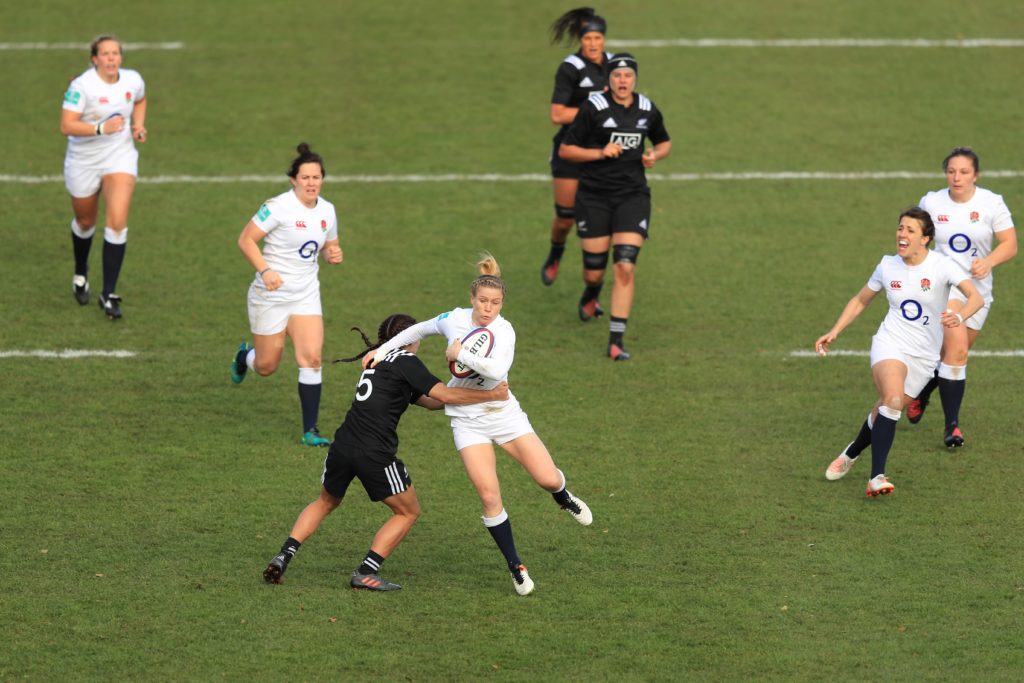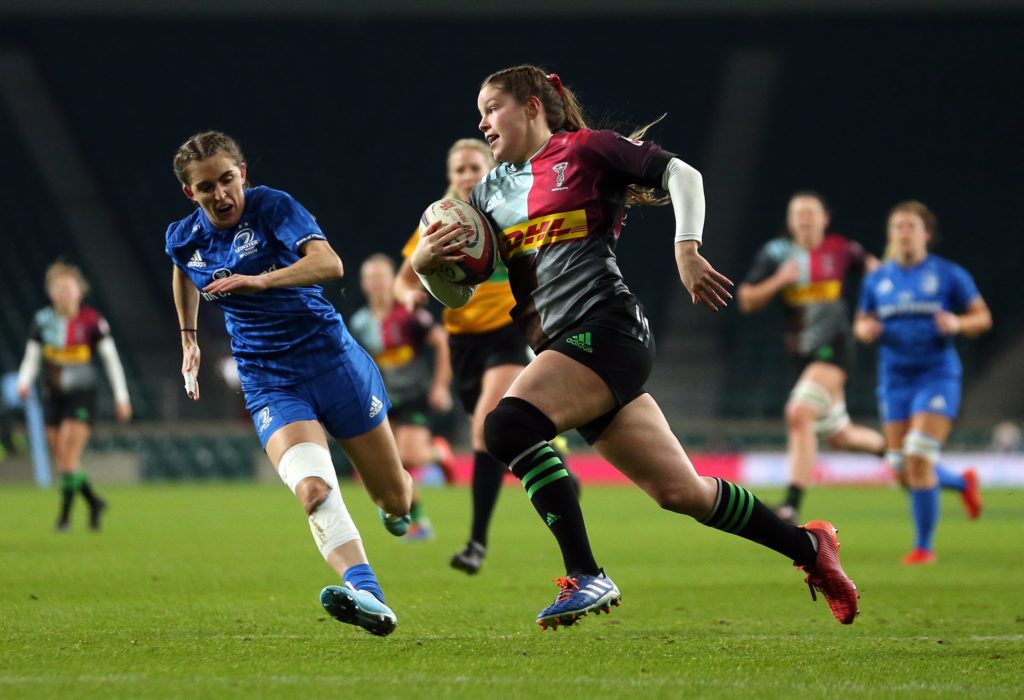It’s been a period of tumultuous change in rugby for so many reasons but would I be surprised if the women’s programme was hardest hit by the RFU cuts because they don’t earn enough money in the first place – some girls earn less in a year than the men’s players earn in a single Test!
No, my concern is that it’s not in the best possible shape because of the decisions being made by administrators at the top of the game. It is like they are developing a new shiny car to drive the women’s game forward but are running it with a flat and the petrol gauge on red.
One of the biggest frustrations I have with the governing body is that they don’t portray the financial situation in a realistic light. I think that by being honest the women’s game will actually gain more sponsorship and support.
When I worked as a player rep, I pushed hard on player contracts but if we’re honest, they are not going to change the lives of any of the athletes beyond giving them the opportunity to be a current pro player. I remember purposefully asking people how much a professional women’s rugby player earns? Most guessed double the amount they earn in reality.
The RFU have cottoned on to the fact two clubs are dominant so they’ve imposed a salary cap of £60,000. This isn’t per player. This is for a squad of 40 players.
The RFU are saying they’re supporting the growth of the elite game but when I first started my career 15 years ago there was a senior academy, an A-side and a senior side – it was an elite pathway. Over the years I’ve seen that stripped back to a couple of fixtures with the national academy and U20s, if players are lucky. I understand money has been invested into the Premier 15s, which admittedly has needed to happen to support the introduction of minimum standards, including professional coaching, medical cover and off-field support in club rugby. To be clear, this has significantly grown the level of competition and has most definitely produced a better playing base. However, this has been lopsided because of the sizeable shift of internationals to Saracens and Harlequins. Of course, that’s brilliant for those clubs but not so good for having a competitive league.

We’re now into a new three-year process where players are starting to get paid by their clubs, not just country. Fantastic. However, the RFU have cottoned on to the fact two clubs are totally dominant so they’ve imposed a salary cap of £60,000. This isn’t per player. This is for a squad of 40 players for the entire season. This seemingly was put in place to try and ensure the movement of England players away from the two big hitters, but this has not happened. Frustratingly and somewhat ironically, the vast majority of clubs are having major problems keeping under the cap, so surely this has to be reviewed at their earliest convenience? It’s an unnecessary blocker to moving towards a semi-professional game. Why only £60,000?
Another major issue hindering the growth of the game is the avoidable errors made in covering the international game. Often it clashes at Test level with the men’s game in the Six Nations and there will only be one winner. This instantly restricts attendance and viewing figures of the live games which is counterproductive.
Why are we pushing the women’s game to compete with the men’s, rather than complement each other?
Professionally I’ve had to choose between going to Twickenham for the men’s game and working with the BBC or going up to Doncaster to be involved in the women’s game at the same time. If I’m having to make a tough decision, there will be a lot of others in my position. Why are we pushing the women’s game to compete with the men’s, rather than complement each other?
Then there is the kick-off times of all three of the women’s test matches clashing with each other. Patently, this restricts the viewing figures as supporters have to choose which game to watch. This thoughtless scheduling is putting the women’s competition on the back foot before a ball is kicked or passed in anger.

It’s hard not to get fed-up. I sat in a meeting ten years ago and challenged the women’s elite calendar. Test rugby was being played in London and on the same day the U18s pathway programme was being delivered in the Midlands. These were the girls who were the future of our game. These were the ones who should have had the opportunity to be inspired by the current senior players. Yet these girls didn’t have the opportunity to watch the seniors play, even if they’d wanted to.
Fast-forward to Six Nations this year it was like Groundhog Day. Once again the U18s programme is being hosted on the same day, and at the same time England were playing. When I questioned why this was happening, I was told ‘they could watch the games on catch-up’ – I mean, how is that going to inspire anyone? Location of training/ matches. Date clashes. Timing clashes. All in the control of the RFU but yet when asked why, there is no answer. Is this a lack of joined up thinking, or a complete oversight? Or, are decisions being made without a clear strategic plan? Surely having matches in the morning followed by sitting in the clubhouse to watch the international afterwards would be brilliant for everyone. It would mean money over the bar, role models being celebrated and players being inspired.
I think we should have the confidence to ruffle feathers. Drive the game forward at the pace it wants to move.
I feel all of this has culminated in women’s rugby not being driven at the pace it should be. I’m positive about the support the RFU gives to the women’s game, because it’s more than any other nation in the world but of course they give more because they have more. My frustration is that changes aren’t happening quick enough and often down to largely basic errors or oversights. If the RFU were open and transparent about the pay-brackets then those in the game would not be left to make educated guesses from newspaper reports. It might even lead a company or brand to step in because they thought it was simply not good enough that the players have to pay for travel, equipment and even their rugby boots. Until people know the full-story they can’t support it.
We are a point when the world has pressed pause and we have to make changes or learn how to evolve pretty quickly. I think we should have the confidence to ruffle feathers. Drive the game forward at the pace it wants to move. The world is asking for it to move forward. We are having more gender parity. We are moving towards more balance in every aspect of the world we live in. We need to give it a push and see the women’s game soar.
Danielle Waterman won 82 caps for England as a full-back, where she played in three World Cup finals. She now works in the media and is part of the @TryHardsPod podcast.
If you’ve enjoyed this article, please share it with friends or on social media. We rely solely on new subscribers to fund high-quality journalism and appreciate you sharing this so we can continue to grow, produce more quality content and support our writers.



Comments
Join free and tell us what you really think!
Sign up for free